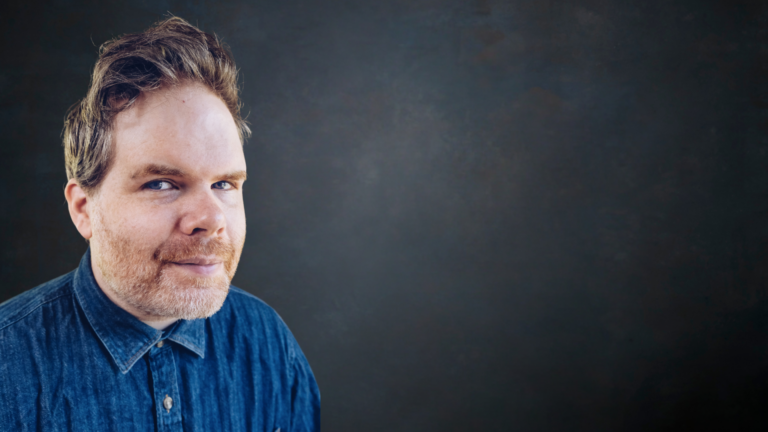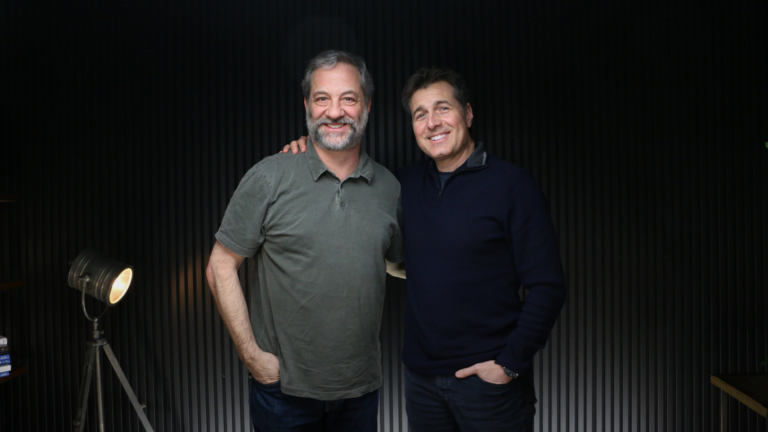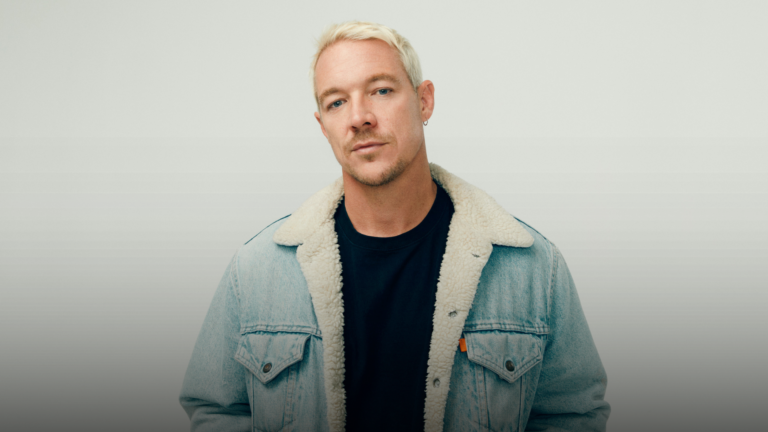This week’s episode is with David Farrier.
David has always been drawn to the stranger side of life, reporting and hosting across a range of news and entertainment programmes for TV3 New Zealand for nearly a decade.
For many, David’s name conjures up images of grown men tickling each other in boxing rings.
That’s not because it’s a hobby of his, but because his critically-acclaimed 2016 documentary Tickled, which is still cemented firmly in the minds of any who watched it, follows the largely unknown subculture of Competitive Endurance Tickling.
Following its release, David was quickly approached by Netflix to create Dark Tourist, an eight-part docuseries about, you guessed it, dark tourism—those who forgo sandy beaches to instead visit places that are historically associated with death and tragedy. His stories from this show are… unbelievable.
David now co-hosts Armchaired and Dangerous, a monthly podcast with Armchair Expert’s Dax Shepard and Monica Padman about conspiracy theories, and last year launched a newsletter named Webworm that is a joy to subscribe to.
In this conversation, we discuss why he’s drawn to the stranger and more dangerous sides of life, how conspiracy theories are growing, how they’re changing the world we live in, and some strategies for dealing with that one whacky uncle over the holidays.
“There’s such a black and white view of the world and you’re in this camp or you’re in that camp. You’re left or right. And the conspiracy theories have kind of amped up with that”
In This Episode:
How his childhood worldview inspired his work
I had a great upbringing. I think one thing that did play into where I went in my life is I had a pretty narrow worldview, and that was a pretty religious worldview. I was raised in a certain form of Christianity that didn’t allow for a lot of nuance in the way I viewed the world. And so I think when I left the university and started to fall away from that belief system, I was just kind of delighted about the types of people that existed in the world and the different belief systems and the different ways that people live their life. And so, I really lean heavily into that. And I think where I went in my documentary work from that was leaning into some of the more, I guess, left field groups, whether it was I started in pop culture journalism, and I was drawn to metal music, because it was such a different set of people. And I love subcultures and subgroups. And I think a lot of that was from having an upbringing where it was pretty narrow.
The story behind his show, “Dark Tourist,” on Netflix
The idea of Dark Tourist was that there’s this area of tourism, which is the opposite to what you expect instead of going to a beautiful beach or going to some wonderful idyllic place, there’s a certain subset of travelers that want to push what they see and what they do. And so they travel to places basically where something terrible has happened. And morally, this threw up a bunch of really interesting questions because often a lot of people traveling from a place of privilege. And, suddenly, disaster tourism comes into this and should we be traveling to these places where awful things have happened for our own? Is it education or is it entertainment? So these are the kinds of things we’re wanting to look at. And it led to some pretty fascinating faces.
Morally compromising situations
The favorite episode for me, I think, was meeting Pablo Escobar’s hitman, Popeye. And narco-tourism is this big thing that was popularized in the large part at the time due to Narcos on Netflix, and people were suddenly invigorated by Pablo Escobar and his story. And so people would flood to these different patients from Narcos, the TV show, which were also locations in reality. And so, he ended up spending some time with Popeye. And this is a man that had killed over 300 people. He had executed his pregnant girlfriend. I will literally never meet anyone – be very surprised if I ever met anyone – in the rest of my life that was as morally objectionable to Popeye. And yet, he was also incredibly charismatic. And I felt safe around him. I felt zero danger despite him objectively being the most dangerous person I’ll ever meet.
“I find being around these people fascinating…”
Just to be in the presence of someone like that, it’s just fascinating, because it’s like being in a way with an alien. They think in such a different way to you. So there’s such a disconnect there. And you occasionally will connect on little points. But largely, you won’t. They’re just marching to the beat of their own drum. And, yeah, it’s sort of terrifying and fascinating at the same time. Something in me really likes spending time with those sorts of people mainly partly because they make for a good story perhaps. But I think part of me does just like how fucking weird it is.
When did he get interested in conspiracy theories?
Probably when I got the internet, which would’ve been around 12, 13, and suddenly being able to jump online, I read about the Loch Ness Monster, Bigfoot, which was stuff I really liked just from seeing them in books. Suddenly, I could go online and find all this information. And that very quickly went into the moon landing, JFK. Conspiracy theories just captured a part of my imagination. And when I was a kid, I was very engaged by them and excited by them. And then, of course, the X Files came along when I was a teenager, and that sort of solidified things even more. I loved that stuff so much.
The changing landscape of conspiracy theories
Conspiracy theories used to feel lighter and more engaging the moon landing, JFK. Of course, there are conspiracy theories. Conspiracy theories are real. Watergate happened. So, there’s that kind of stuff. But then, what it feels like today is where, and certainly here in the United States, there’s such a black and white view of the world and you’re in this camp or you’re in that camp. You’re left or right. And the conspiracy theories have kind of amped up with that to the point where politically, obviously, there’s some different issues that weigh into things. But you suddenly end up with a bunch of people and successfully getting into one of your biggest houses of power here and rioting. And that’s madness. How did we get here? And that’s a question I ask myself every other day.
Working definition of a conspiracy theory
It’s this idea that people have come together to conspire, to cover up the truth in some way. So a conspiracy can be small. It can be big. And historically, people in positions of power have been trying to screw over the little guy forever. Conspiracies exist. It’s a thing. I think the meaning though of conspiracy theory, especially in the last couple of years, and it’s certainly since the rise of something like QAnon has taken place, has sort of changed its shift whereas I think if you spit it out, if you sped out the word conspiracy theory, spit out that phrase today, people wouldn’t sort of think of that basic definition. That’s sort of probably a more think of here, a group of people that believe something that is completely at odds with reality. And how did we get to this point? It means a very different thing now to what it did two, three, four, five years ago.
Underlying religious aspects of conspiracies
I wouldn’t view the early sort of members of the Christian Church as conspiracy theorists. I think you can believe in a cause, and that’s just a belief system that you hold. It doesn’t have to play into that. I think what becomes really fascinating with conspiracy theories is that religion certainly comes into it, I mean, nearly any conspiracy that you poke around and dive into comes down to powerful elites being involved and those powerful people often being Jewish. There’s a hugely antisemitic push to a lot of conspiracy theories. It often goes back to blaming a big bad. And that big bad in a lot of people’s minds is often Jewish. That happens with QAnon. It happens with all the big conspiracy theories, whether you’re talking about the Illuminati, the Knights Templar. It all has this deeply antisemitic bent to it. You’ll often get to that in any conspiracy theory.
Good vs Evil theme
A lot of these believers are also like very religious people, and they have been raised in a belief system where there is this very literal war being carried out between good and evil. It’s super simple. There’s like behind the scenes. Angels and demons are literally having this fight here on earth. It’s very cinematic and epic and exciting. And it’s exactly what these conspiracy theory beliefs tickle. It’s that bit of us that wants to blame our problems and our shortcomings on like a big bad. And I think religion has kind of primed a lot of people to believe in the types of language and the types of beliefs that you hold. There is this battle going on and that you’re a soldier fighting. And, yeah, we’re going to run into Congress because we are here to do battle. And it’s that kind of language that is evoked that’s deeply religious and marries up to a lot of the QA non stuff incredibly closely.
There are levels to conspiracy belief
If you take something like 9/11, for instance, not all 9/11 truth as they call themselves are the same. There are some at the less extreme end that would think that terrorist attack was used as an excuse by the United States to go to war and claim some land and claims some oil, and all the rest of it. There’s others at the other end that will say… well, not the other end, just a little bit further along that continuum will say, “Oh, maybe, the American government knew that was going to happen.” And maybe, they didn’t do anything about it. And it just sort of happened. And that was used as the excuse. To the other extreme end, where there are multiple bombs planted in the towers, there are no planes. They’re holograms. They didn’t even exist. And the government orchestrated all this, so we conveyed it to another country.
The makeup of a “believer”
I think one thing that is surprising, I think in a way, is that they’re not a bunch of idiots. There are some incredibly smart savvy people that can believe some really outrageous things. And I think it’s really easy just to go, “I’m smart. You’re dumb.” They’re not. They just have gone down a rabbit hole, and you haven’t. And I think as a general rule, I think people that go down these rabbit holes into conspiracy theory believe have a distrust for authority in some way and a skepticism, and don’t like being told what to do. And that can be a really healthy thing.
You won’t change someone’s mind immediately
They say that coming out of a conspiracy theory belief that takes a couple of years. You’re not going to snatch someone out of it. The best you can hope is to seed a little bit of doubt in the brain that will slowly set off some dominoes in their own mind that they have to come to terms with. Certain people in QAnon, certain things went too far. And now, we’re seeing people start to slip out of that belief system. But you’re arguing with the belief system. Logic isn’t going to cut through because it’s like you’re sitting down with your 90-year-old beautiful grandma who has this really deeply seated religious belief. She believes maybe the earth is 10,000 years old, stuff that is objectively scientifically doesn’t hold up particularly well. You get stuck into her. She’s not going to come around with your science that you’re quoting at her because it’s such odds with what she feels and what makes her life worth living in a way, and what makes sense of the world.
We need to be better at recognizing patterns
As humans, we’re very good at thinking in our own timeline in our own world. I think we are really good at predicting, looking forward, maybe five or 10 years, maybe back about 10. Beyond that, we’re pretty useless. We don’t see patterns. We don’t see things that have happened before. We don’t know that for every government intervention, whether it’s wearing seat belts or the last vaccine role that we had to have, there’s always people that say, “No, I’m not going to do that. I want my freedom.” We don’t remember this stuff. So it’s like every new problem we get, it’s like we’re experiencing it for the first time. And that worries me that we just get so stuck in like just the day to day, whether I enjoy that or whether I don’t. And we need to be able to look beyond that for any type of hope it’s saving the planet.
How he thinks of the future
I am pretty pessimistic, which I think confuses people because I am a pretty upbeat, happy person. I’m a happy person. I’m lucky enough that I don’t get depressed, and I don’t suffer from depression. I find things in each day to be excited for. Looking at the planet as a whole though, I think… I make no bones about it. I’m, I guess, what you’d call an America a liberal. I’m left leaning. That’s just the way I am. I believe in science. I believe that the planet is on fire and we are not doing enough to change that. I think since Donald Trump in part sort of instilled this idea that we can create our own reality and that everything that we don’t like is fake news, those ideas are spreading. And I think when we pair that up with the demise of the planet, I don’t know how we are going to be able to come together and actually come up with a solution because things are dire. Things are on fire, and we’re not doing anything about it. We’re just sort of muddling on with our own silly little problems here on earth.
Where you can find David’s work
I write a newsletter called Webworm, which is webworm.co. You can sign up for that. There’s a free version. There’s a paid version. You certainly don’t have to pay me for all my conspiracy theory writing. I always write for free. I never want it to be paywalls. I do a monthly podcast with Dax Shepard and Monica Padman called Armchaired & Dangerous where we kind break down and discuss conspiracy theory culture. I do that once a month. But yeah, I think Webworm is where you can follow my stuff. I tweet. But increasingly, I think Twitter is just the worst of society where we are just breaking really complicated ideas down into very few words, which isn’t helping anyone. So, yeah, I’m putting more effort into writing these days. And, yeah, some of my documentary work, it’s up on Netflix and HBO. So you might enjoy that. (Tickled, Dark Tourist)



